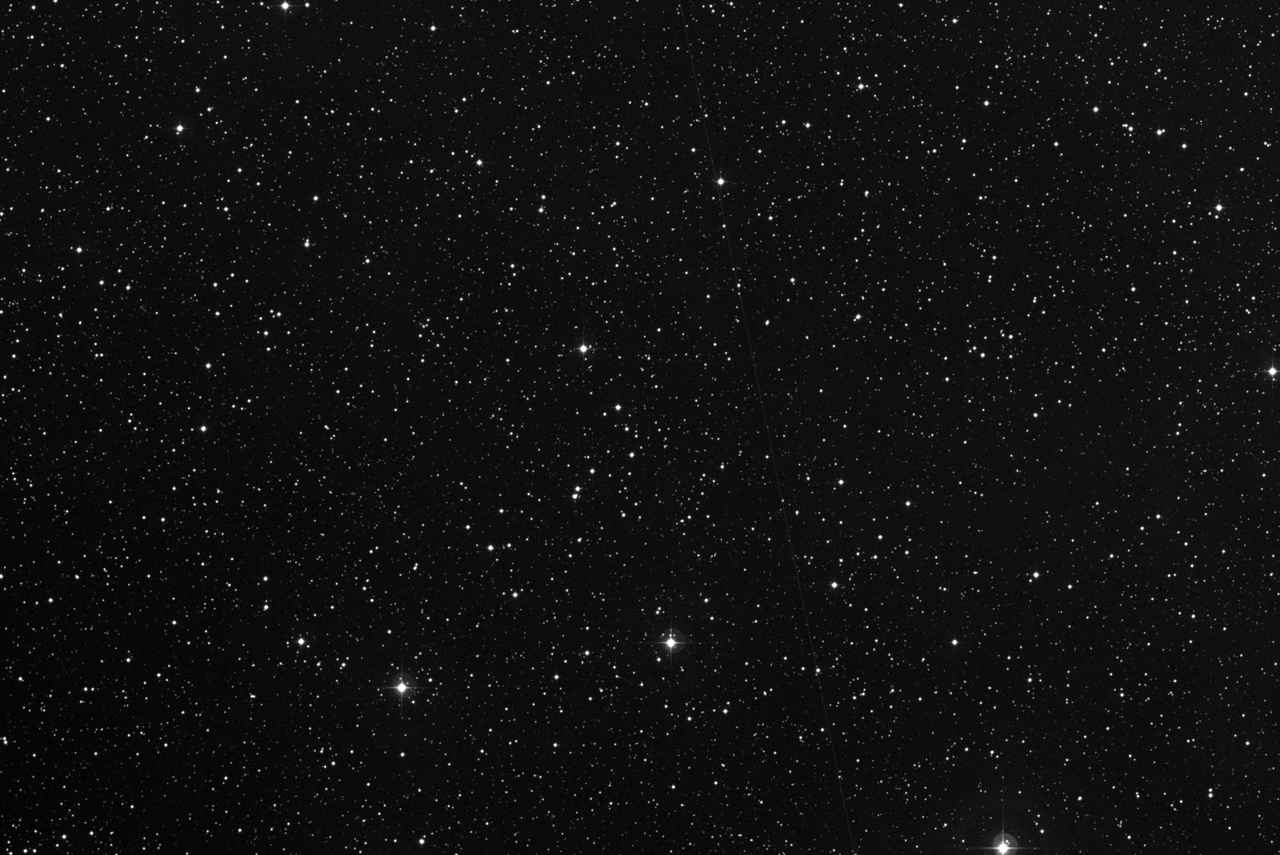Asteroid 20 Massalia
Asteroid 20 Massalia is in the constellation of Gemini, at a distance of
Finder Charts
The sky charts below show, at different resolutions, the position of asteroid 20 Massalia in the sky. Click on each chart to access the interactive star map tool.
The following map uses photographic imagery from the Digitized Sky Survey (DSS) to realistically visualize the precise position of asteroid 20 Massalia against the stars in the background. The horizontal size of the map measures 60 arcminutes. Click on the image to access a more detailed full-screen view.


Equatorial Coordinates
Apparent
J2000
Additional Information
Rise and Set Times
The following table lists today's rise, transit and set times of asteroid 20 Massalia from Greenwich, UK (all times relative to the local timezone Europe/London):
If you need to access this information frequently for your observations, you can create a simple customized Quick Access page, so that you can easily bookmark it in your browser favorites or add a shortcut to your mobile phones' home screen.
Distance from Earth
The distance of asteroid 20 Massalia from Earth is currently
The following graph shows the distance of asteroid 20 Massalia from Earth as a function of time. In the chart the distance is measured in Astronomical Units and the data is sampled with an interval of 1 day.
Note: The values in this chart may not be entirely accurate around the time of closest approach for objects passing very close to Earth at high speed (e.g., Near-Earth Objects).
The value of the distance of 20 Massalia from Earth is also available as a real time updated value in the live position tracker.
Closest Approach to Earth
In the period between January 1, 1900 and December 31, 2099, the closest approach of asteroid 20 Massalia to Earth will happen on Monday 6 January 2048 at a distance of 1.077062 Astronomical Units, or 161,126,212 kilometers:
Note: the values for the closest approach are computed with a sampling interval of 1 day.
Light Curve
The following chart shows the light curve of asteroid 20 Massalia, i.e., its apparent magnitude as a function of time. The curve is calculated using the latest ephemerides provided by JPL Horizons. The magnitude data is sampled with the interval of 2 days. Because of this sampling, inaccuracies may occur for objects that have large variations of brightness over a few days. For comets, large discrepancies can arise between the calculated brightness and the observations due to their highly dynamic, and not always precisely predictable, behavior.
Orbital Elements
The following table lists the orbital elements of asteroid 20 Massalia at epoch February, 24 2023 00:00 UTC (JD: 2460000.5). Source: JPL Small-Body Database
| Element | Symbol | Value |
|---|---|---|
| Orbit eccentricity | e | 0.14328810 |
| Orbit inclination | i | 0.70919118° |
| Perihelion distance | q | 2.06345443 AU 308,688,390 km |
| Aphelion distance | Q |
2.75369454 AU 411,946,840 km |
| Semi-major axis | a |
2.40857448 AU 360,317,615 km |
| Orbital period | period |
3.7381 years 1,365.3329 days |
| Date of perihelion transit | Tp | November 4, 2021 2,459,522.6132 JD |
| Next perihelion transit | July 31, 2025 2,460,887.9461 JD |
|
| Argument of perihelion | peri | 257.50682680841° |
| Longitude of the ascending node | node | 205.9677482734° |
| Mean anomaly | M | 126.00534306121° |
| Mean motion | n | 0.26367196°/day |
Orbit Visualization
The following chart is a 3D animated visualization of the orbit of asteroid 20 Massalia relative to the other major objects in the Solar System. You can access more advanced features using our 3D Solar System Viewer.
Physical Properties
The table below lists the known key physical properties of asteroid 20 Massalia. The source for this data is the JPL Small-Body Database.
| Physical Parameter | Value | Relative to Earth |
|---|---|---|
| Diameter | 145.5 km | 0.0114 |
| Sideral Rotation | 8.0980 hours | 0.3383 |
| Absolute Magnitude | 6.5 | |
| Geometric Albedo | 0.2096 |
15 Days Ephemeris
The following table lists the ephemerides of asteroid 20 Massalia computed for the past and next 7 days, with a 24 hours interval. Apparent celestial coordinates are provided.
| Date | Right AscensionR.A. | DeclinationDec. | MagnitudeMag | Constellation |
|---|---|---|---|---|
| Jul 03 2025 | 06h 27m 26s | +22° 50’ 48” | 10.87 | Gemini |
| Jul 04 2025 | 06h 29m 50s | +22° 49’ 05” | 10.88 | Gemini |
| Jul 05 2025 | 06h 32m 13s | +22° 47’ 13” | 10.89 | Gemini |
| Jul 06 2025 | 06h 34m 37s | +22° 45’ 14” | 10.90 | Gemini |
| Jul 07 2025 | 06h 37m 00s | +22° 43’ 07” | 10.91 | Gemini |
| Jul 08 2025 | 06h 39m 23s | +22° 40’ 52” | 10.91 | Gemini |
| Jul 09 2025 | 06h 41m 47s | +22° 38’ 28” | 10.92 | Gemini |
| Jul 10 2025 | 06h 44m 10s | +22° 35’ 56” | 10.93 | Gemini |
| Jul 11 2025 | 06h 46m 33s | +22° 33’ 17” | 10.94 | Gemini |
| Jul 12 2025 | 06h 48m 56s | +22° 30’ 29” | 10.95 | Gemini |
| Jul 13 2025 | 06h 51m 18s | +22° 27’ 33” | 10.96 | Gemini |
| Jul 14 2025 | 06h 53m 41s | +22° 24’ 29” | 10.96 | Gemini |
| Jul 15 2025 | 06h 56m 04s | +22° 21’ 18” | 10.97 | Gemini |
| Jul 16 2025 | 06h 58m 26s | +22° 17’ 58” | 10.98 | Gemini |
Additional Resources on TheSkyLive
- Asteroid 20 Massalia: Complete reference information on TheSkyLive.com.
- Where is asteroid 20 Massalia?: Key information on where to find asteroid 20 Massalia in the sky.
- Distance of asteroid 20 Massalia from Earth: Find out how far asteroid 20 Massalia is from Earth right now.
- How Bright is asteroid 20 Massalia?: Current visual brightness (magnitude) and apparent size.
- Rise and Set Times: Rise and set times of asteroid 20 Massalia from your location.
- Interactive Sky Map: Planetarium-style interactive visualization of asteroid 20 Massalia's position in the sky.
- Live Position Tracker: High precision real time tracker of asteroid 20 Massalia's position using deep space imagery.
- Ephemeris: 15 days asteroid 20 Massalia's computed ephemeris.
- Orbital elements: Information about asteroid 20 Massalia orbital parameters.
- Orbit Visualization: 3D interactive visualization showing the orbit of asteroid 20 Massalia with respect to the major Solar System objects.
- Physical Data: Detailed information about physical properties of asteroid 20 Massalia.










